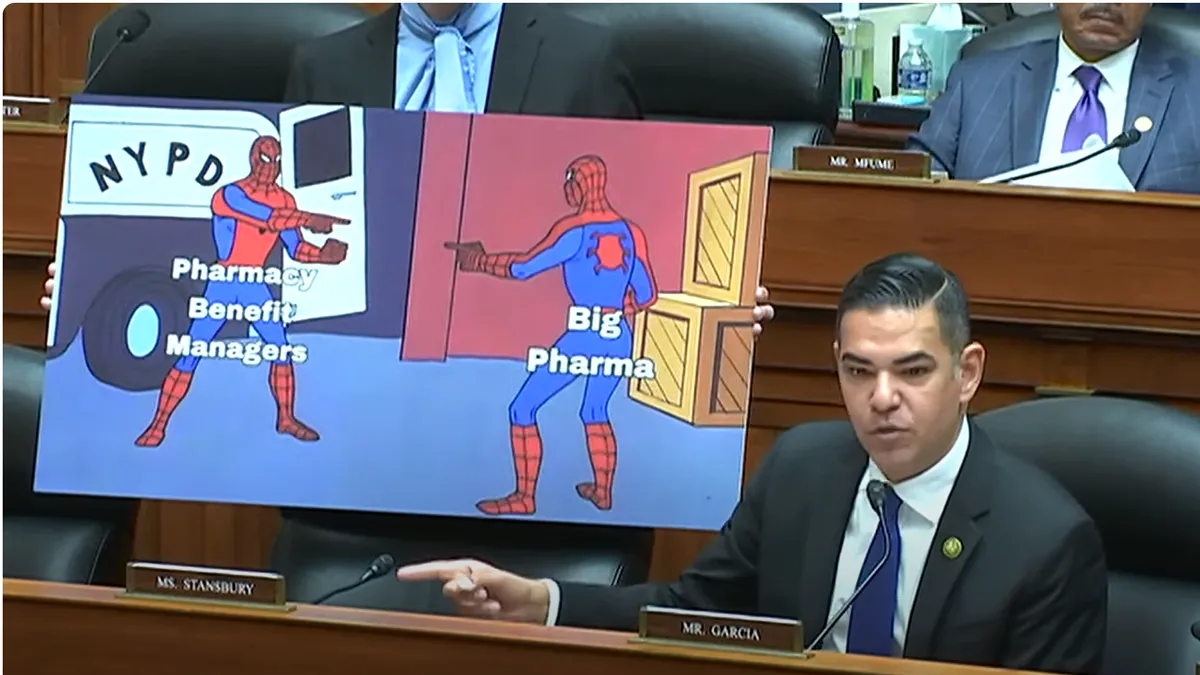The budget bill currently under consideration in Congress is big — and it’s complicated. The 1,000-plus page document is full of tax and spending cuts, including some significant changes that will impact pharma and the larger healthcare industry.
The legislation, which was narrowly approved in the House last month and is now in the hands of the Senate, includes reforms to pharmacy benefit managers and the Inflation Reduction Act.
But the bill’s path forward is uncertain. Senate Republicans need a 51-vote majority to pass the mammoth legislation through the budget reconciliation process, but divides among GOP members are making a self-imposed July 4 deadline murky, according to recent reports. Namely, Senators are split over spending cuts, including billions from Medicaid and Medicare, and the bill’s potential to add trillions to the national deficit.
Meanwhile, pharma needs to be aware of key reforms in the bill, which contains both wins and losses for the industry.
IRA reforms
Industry advocates have pushed for reforms to the IRA since it passed during the Biden administration, with the focus squarely on the Medicare drug price negotiation program.
Currently, the program exempts orphan drugs from price negotiations if they only have one indication for rare disease. The law made it less likely for pharma companies to pursue more rare disease indications, according to industry groups such as the National Pharmaceutical Council. A brief by the council found that the percentage of orphan drugs that received a second indication dropped 48% after passage of the IRA.
The budget bill proposes adjusting this rule to extend the exemption to orphan drugs that treat “one or more rare diseases or conditions.”
Another sought-after reform is notably absent from the budget bill, even after significant industry lobbying efforts over the past few years. Known as the pill penalty, the IRA currently makes small molecule drugs eligible for price negotiations after nine years, while biologics are granted 13 years. Lobbyists argue the law has had an impact on R&D and investments by disincentivizing small molecule drugs, including the discontinuation of 51 research programs and 26 drugs, according to Incubate, a coalition for venture capitalists that tracks investment impacts of the IRA.
Expectations were high that the reform would be included in Republicans’ budget agenda. President Donald Trump even included the fix in an April executive order that aimed to lower drug prices.
Congress could pass a pill penalty fix on its own — a standalone bill called the Ensuring Pathways to Innovative Cures (EPIC) Act was introduced in Congress earlier this year, but it has yet to be approved.
"While the current draft of the budget reconciliation package does not include a fix for the pill penalty, we remain encouraged that there are still viable legislative vehicles to address this issue in the near term,” John Stanford, founder and executive director of Incubate, told PharmaVoice. “We urge the Senate to find a way to address the pill penalty in reconciliation. If that doesn't happen, the next step would be passing the EPIC Act to restore parity for small molecule drugs and biologics — and send a clear signal that small molecule innovation is a national priority."
PBM changes
The budget bill also includes another win from pharma’s lobbying agenda that takes aim at pharmacy benefit managers, which the industry has long blamed for drug prices in the U.S. PBMs are also a target for Trump in his “most favored nation” policy that would “totally cut out the famous middleman” and allow direct pharmaceutical sales to Americans at the same prices paid by other countries.
While the budget bill doesn’t include all the PBM reforms that have been considered in the past few years, there are some “modest” changes related to federal health programs, Bloomberg stated.
The bill prohibits spread pricing, which is a practice where PBMs charge health plans, in this case Medicaid, higher prices than what they reimburse pharmacies for the same drugs. PBMs would no longer be able to pocket the difference as profit if the bill passes. Plus, the package would require all rebates or discounts received by PBMs to be passed on to a Medicare Part D plan sponsor, according to a recent brief by Mintz. PBMs would also be limited to collecting only service fees as compensation, and would have to follow new reporting requirements about the drugs they cover, their average acquisition costs, rebates and more.
Other PBM reforms may be on Congress’ agenda outside of the budget bill later this year, and the Senate could still amend the proposed budget bill to get it across the finish line. For example, the Senate was close to passing a comprehensive PBM reform package at the end of 2024 that also included the prohibition of spread pricing, but Republicans nixed the bill, targeting inclusion in their budget package instead, according to Mintz, which expects that at least some PBM reforms will be passed this year.



















